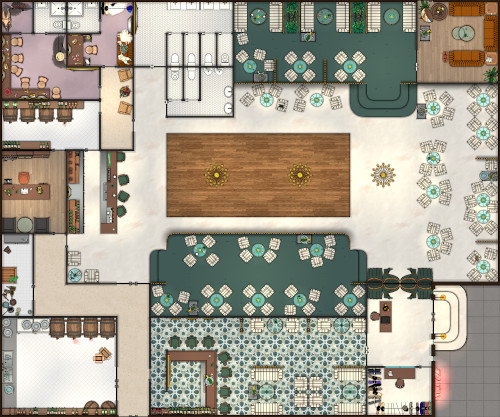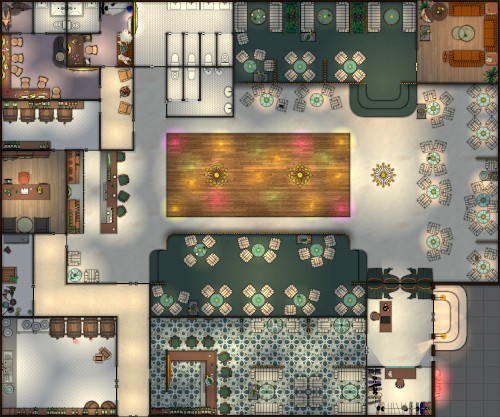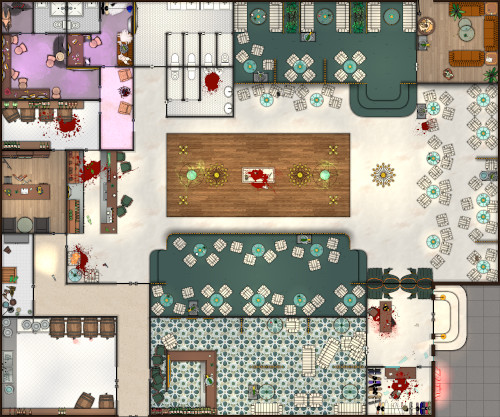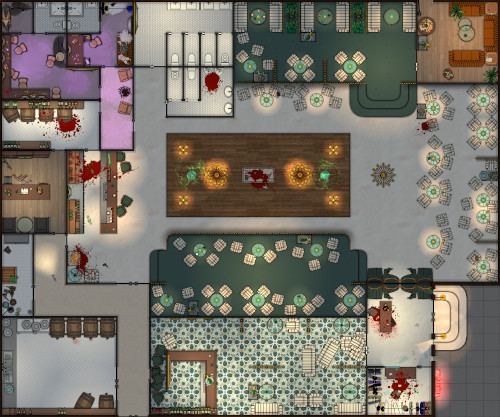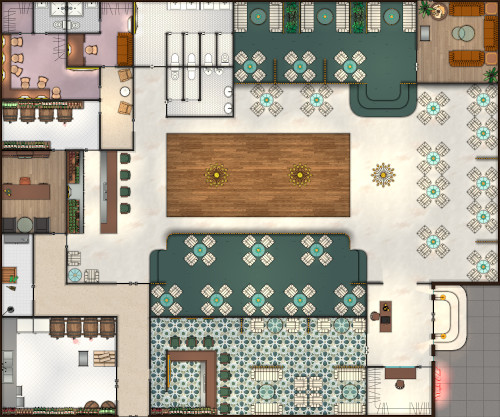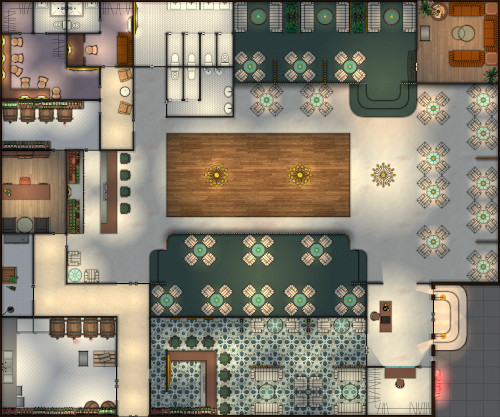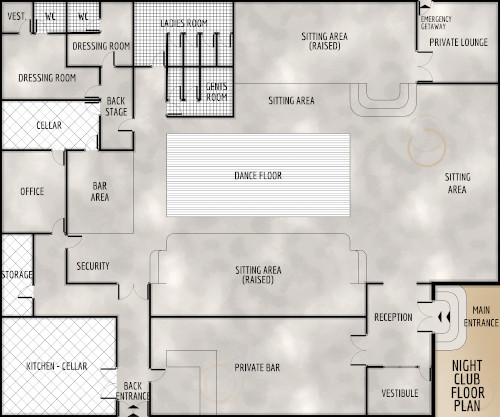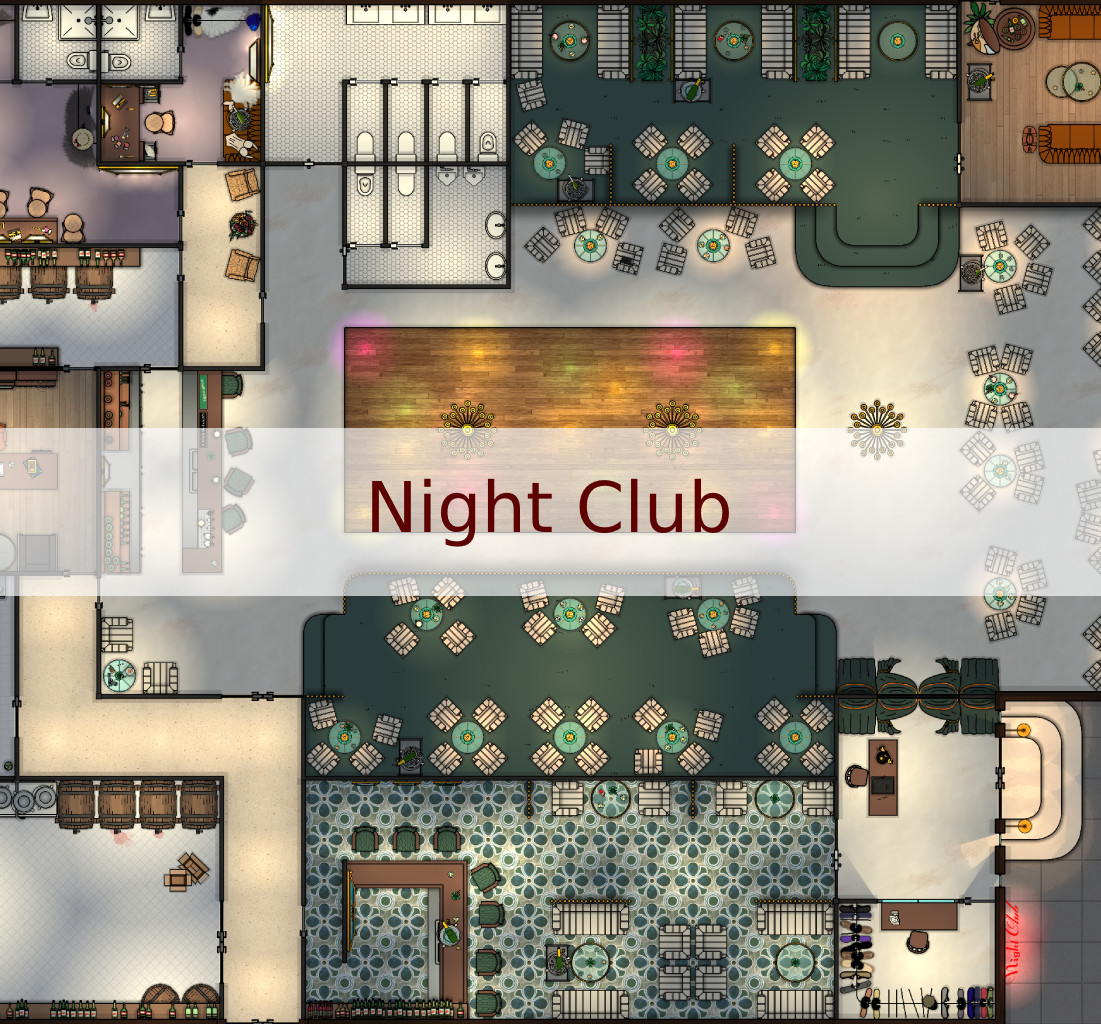Why does the club attract such an eclectic clientele after 2 AM, and what's behind the VIP room that requires a different kind of membership? Which performances aren't listed on any official schedule, and why do certain patrons never seem to age despite being regulars for decades? What's beneath that stage that creaks with sounds that aren't footsteps?
Follow Cthulhu Architect on BlueSky!I went to the club to escape my life and pretend I’m somebody else. Now I don’t know who I am anymore.
― E. Leo Foster
Cordelia Thorne had always prided herself on reading people, but the patrons of The Crimson Tempo defied every instinct she’d honed during her fifteen years as a journalist. They moved with an odd synchronicity, their conversations flowing in rhythms that matched the club’s hypnotic bass line, their eyes holding a glassy satisfaction that seemed almost narcotic.
She’d come investigating the disappearances---seven people in two months, all last seen entering this art deco establishment that had somehow thrived through every economic downturn since its mysterious opening. The club’s owner, a pale man named Vesper Kaine, claimed ignorance with a smile that never quite reached his colorless eyes.
The music tonight felt different, more insistent, as if the sound itself was alive and hungry. Cordelia noticed how the other dancers moved in perfect unison during certain passages, their bodies swaying to rhythms that her ears couldn’t quite detect but that her bones seemed to recognize. The chandelier above cast shadows that moved independently of its gentle rotation.
As midnight approached, the remaining patrons gathered in the center of the dance floor, forming concentric circles around something Cordelia couldn’t see. Their movements became more deliberate, almost ceremonial, and she realized with growing horror that the music wasn’t coming from the band anymore---it was emanating from beneath their feet, thrumming up through the floorboards like a massive heartbeat.
When Vesper Kaine appeared beside her, his hand cold against her shoulder, Cordelia understood why people disappeared here. They didn’t leave. They simply became part of the rhythm, part of the dance that had been playing since the club’s first night, feeding something vast and patient that dwelt in the spaces between the beats. As her own feet began to move against her will, she wondered if anyone would come looking for her, or if they too would simply join the endless waltz.
